Search Results for 'Eamonn Ceannt'
9 results found.
Pipes of 1916 rebel head west
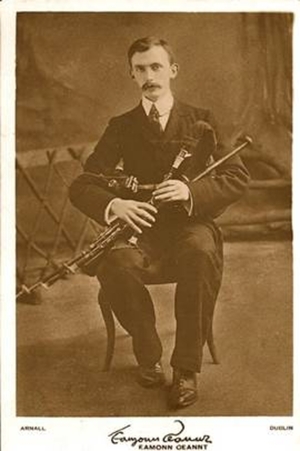
The set of uilleann pipes belonging to Galway’s signatory of the 1916 Proclamation, Eamonn Ceannt, will be returning west next month as part of the Ballina Salmon Festival in Co Mayo.
Community Diary
Ballina Active Retirement Upcoming Events
Galway painter talks about how a Painting a Day became a way of life
A Galway-based painter who bought her first computer in the early noughties, discovered the Painting A Day movement - and kickstarted her professional career as an artist.
Sound Passing - a weekend of ConTempo
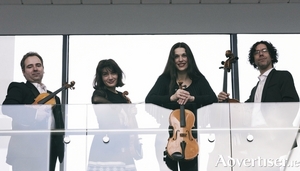
THREE DAYS of contemporary Irish classical music, including a new work commemorating the life of patriot, piper, and 1916 Proclamation signatory Eamonn Ceannt, will be heard at NUI Galway this Saturday, Sunday, and Monday.
Concerts to commemorate Eamonn Ceannt
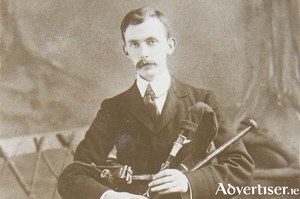
EAMONN CEANNT, the County Galwayman who was one of the seven signatories of the 1916 Proclamation, and who was crucial in reviving interest in, and paving the way for, the uilleann pipes central role in modern Irish music, is to be celebrated through a series of events in the city.
The Galway Sessions 2016 - Remembering Eamonn Ceannt
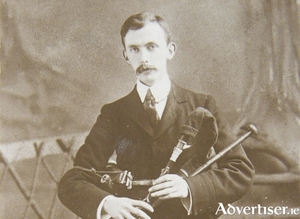
EAMONN CEANNT - Galwayman, traditional musician, Republican leader, signatory of the 1916 Proclamation - will be commemorated and celebrated as part of The Galway Sessions 2016 festival.
A Terrible Beauty is Born – centenary exhibition in Athlone Library
From now until March 12, the Aidan Heavey Public Library in Athlone is showcasing an exhibition borrowing its title from the famous line by W.B. Yeats: A Terrible Beauty is Born. This will be the first of two library exhibitions focusing on the 1916 Rising.
‘What the hell is going on?’
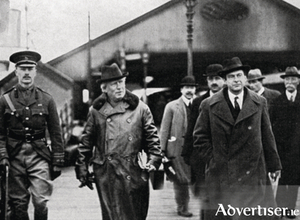
‘What the hell is going on?’ appears to be what the British Prime Minister Herbert H Asquith, is thinking as he disembarks at Dun Laoghaire on May 12 1916, almost three weeks after the Easter Rising. Following six days of intensive fighting, Dublin city centre was unrecogniseable. Practically all its main buildings were destroyed either by artillery fire or burnt out. The list of casualities was horrendous. One hundred and sixteen army dead, 368 wounded, and nine missing. Sixteen policemen died, and 29 wounded. And this at a time when Britain was fighting an appalling war in France, which seemed unending, and its mounting causalities were not only threatening his government’s survival, but had filled the British people with dread and alarm.
Mícheál Ó Droighneáin, 1916 veteran
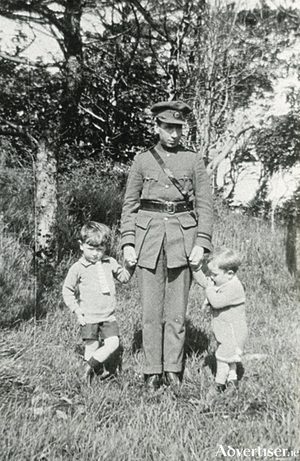
Mícheál Ó Droighneáin was born in Spiddal. He left school when he was 14 and got a job in McCambridge’s for 6d a week. Lady Killanin convinced him to go back to school and he became a monitor, went on to training college in Dublin, and it was there he became a Nationalist. “I became a member of the IRB towards the end of 1910 when I was teaching in Dublin [from August 1910 to January 1913]. Then I came to my native place, teaching in Spiddal for one year and then coming to Furbo.”

